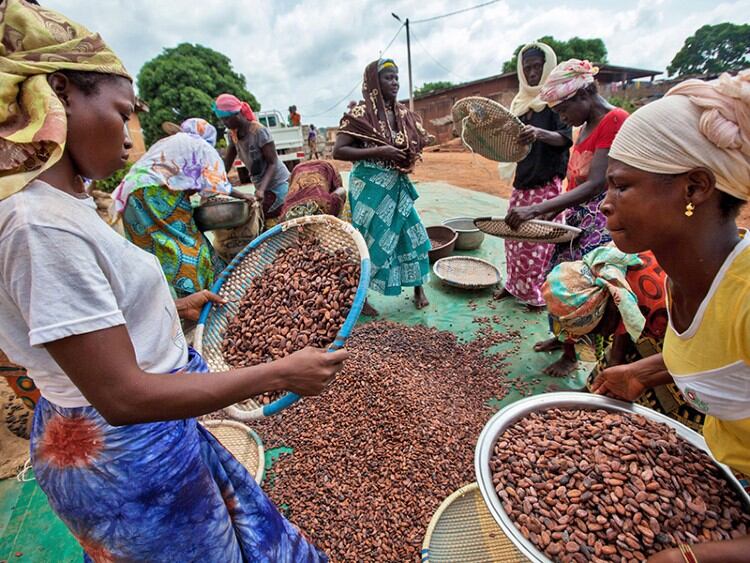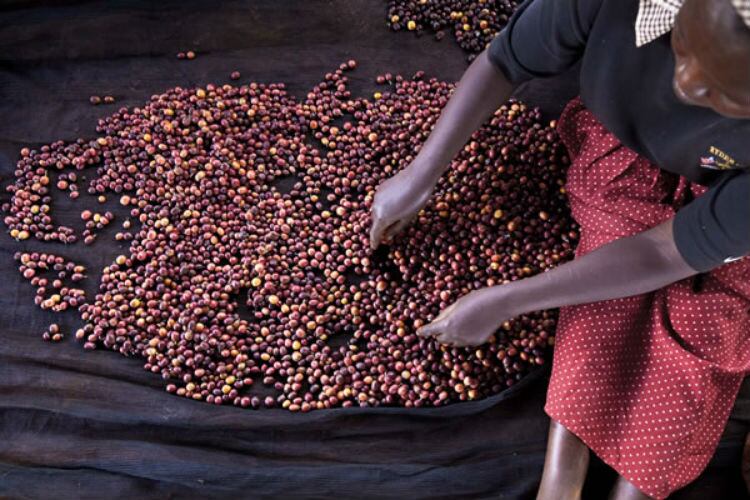A more sustainable cocoa supply chain has challenged the confectionery industry for years. Now, more consumers are aware of the issues in cocoa production and are looking for manufacturers to address them, as John Downs mentioned during his keynote address at the recent NCA annual State of the Industry Conference.
As a starting point, the United Nations’ Sustainable Development Goals are a comprehensive guide to important areas of impact. Manufacturers should also look to partners that can help with the heavy lift of enacting real change throughout the supply chain. Fairtrade International sets standards for both companies and the producers who grow the ingredients those companies source. Fairtrade America is the US chapter of Fairtrade International.
Social Sustainability
Social sustainability encompasses initiatives that support a decent standard of living and the right to work, fair pay, and good working conditions. Businesses that partner with Fairtrade can legitimately promote their positive impact on the farming communities that produce their raw materials.
Paying producers the cost of growing their product sustainably is the best way to eliminate poverty
Fairtrade helps women achieve equality in agriculture by educating them in business, negotiation and finance skills, giving them a vote in how to spend Premium Funding, and advocating for them to earn better wages and diversify their income streams. As the leading ethical label worldwide with strictest standards against child labor, Fairtrade works in farming communities to tackle humanitarian issues that result from extreme poverty.
Economic Sustainability
Paying producers the cost of growing their product sustainably is the best way to eliminate poverty and its resulting socioeconomic issues. Fairtrade provides an essential safety net for producers by setting Minimum Prices for all major commodities and contributing additional monetary resources (Premium Funds, for example) for farmers and workers to fund schools, healthcare and clean drinking water for their communities. Fairtrade also promotes better working conditions, supports workers to negotiate for better pay and is striving to achieve living wages for workers.
Environmental Sustainability
When it comes to environmental sustainability, small-scale farmers have contributed very little to the climate change crisis but unfairly bear the brunt of its impact. Fluctuating temperature and rainfall, unpredictable seasons and extreme weather events have caused rural farming communities to need more support in fighting the effects of climate change.
Through the Fairtrade Carbon Credits program, Fairtrade helps producers become more resilient to climate change by ensuring the average costs of their climate resilience projects will be covered. Furthermore, Fairtrade bans the use of certain pesticides to protect the environment on the farms and in their watersheds.
Partnering with a third-party voluntary sustainability standard like Fairtrade America can be an important first step towards a more sustainable supply chain. Fairtrade helps its partners scale their commitment based on their individual business circumstances.
- Stephanie Westhelle is business development manager for Fairtrade America, an independent non-profit organization, based in Washington, DC.



